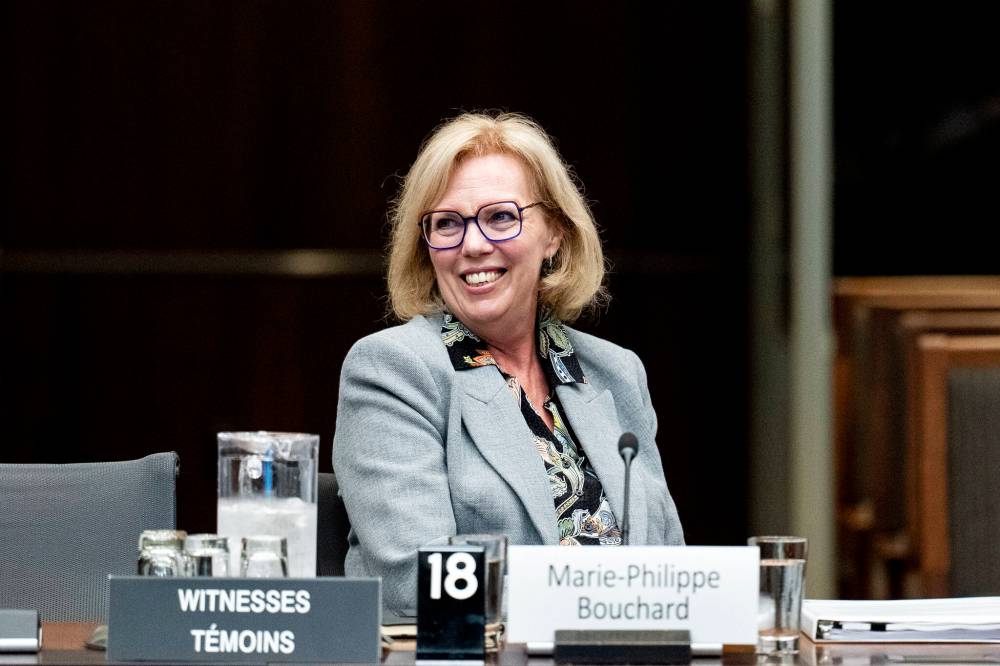The CBC: trying hard to define its future
Advertisement
Read this article for free:
or
Already have an account? Log in here »
To continue reading, please subscribe:
Monthly Digital Subscription
$0 for the first 4 weeks*
- Enjoy unlimited reading on winnipegfreepress.com
- Read the E-Edition, our digital replica newspaper
- Access News Break, our award-winning app
- Play interactive puzzles
*No charge for 4 weeks then price increases to the regular rate of $19.00 plus GST every four weeks. Offer available to new and qualified returning subscribers only. Cancel any time.
Monthly Digital Subscription
$4.75/week*
- Enjoy unlimited reading on winnipegfreepress.com
- Read the E-Edition, our digital replica newspaper
- Access News Break, our award-winning app
- Play interactive puzzles
*Billed as $19 plus GST every four weeks. Cancel any time.
To continue reading, please subscribe:
Add Free Press access to your Brandon Sun subscription for only an additional
$1 for the first 4 weeks*
*Your next subscription payment will increase by $1.00 and you will be charged $16.99 plus GST for four weeks. After four weeks, your payment will increase to $23.99 plus GST every four weeks.
Read unlimited articles for free today:
or
Already have an account? Log in here »
The CBC has a plan. Or so it says.
The public broadcaster, faced with continuing questions about its relevance and ongoing threats of defunding from Canada’s federal Conservative Party, last week released its blueprint for the next five years.
The goals are lofty in terms of the CBC’s expressed intention to grow its audience by reaching segments of the public that currently do not consume its content, but what remains unclear is whether the plan’s desired outcomes are realistic or just fancifully aspirational.

Spencer Colby / The Canadian Press
Canadian Broadcasting Corporation president and CEO Marie-Philippe Bouchard
Like all traditional media outlets, the CBC is struggling to maintain its footing in an environment in which massive global social-media entities have become dominant players, using their digital might to become primary sources of information, while at the same time demonstrating no care or compunction regarding whether their algorithm-driven streams purvey is reliable information or corrosive misinformation and/or disinformation.
In seeking to “allocate resources to address gaps in its service delivery” the plan states, the CBC “cannot afford to rely solely on existing users and fans as confirmation of its value to the public.”
In its role as the publicly funded national broadcaster — and the term “broadcast” is loosely applied, as what was conceived as a radio and then television provider has aggressively sought to shift its mandate into online print publication, as well — the CBC has identified three specific avenues of audience expansion as its focus: children and youth, newcomers to Canada and a more amorphous group described as “non-users or dissatisfied users.”
The document, titled “CBC, Here for Canada: 2025-2030 Strategy” states reaching these groups will require “a redirection of efforts and resources, and an increased focus on audiences using digital and third-party platforms” — in other words, further straying from the radio and television arms that are its foundational purpose.
Some of what the CBC is proposing makes sense, and is in keeping with its mission as the national public broadcaster: seeking to distribute information in rural and northern regions currently underserved by other media, creating content aimed at promoting national unity by fostering connections and countering polarization, and seeking to be a public broadcaster that reflects the diversity of Canada’s growing population.
Other facets of the plan will be decidedly more difficult to achieve — most notably, the intention to create a CBC following in rural (and specifically, western Canadian) parts of the country where people tend to be dissatisfied by the public broadcaster. When asked if this refers to those Conservative-leaning folks in Saskatchewan and Alberta who support Pierre Poilievre’s oft-repeated pledge to defund the CBC, corporation president Marie-Philippe Bouchard said there could be some overlap between the plan’s targets and that disaffected population, but she doesn’t consider it a major factor.
One interesting aspect of the plan is that the CBC — which, despite the billion-dollar budget it’s granted annually by the federal government, continues to compete with privately owned media for ever-more-scarce advertising dollars in local markets — intends to create “resource sharing and training partnerships with other media and partners to strengthen local news ecosystems,” and has set a target of hiring journalists to serve 15 to 20 communities with a population of more than 50,000 that currently have little or no CBC/Radio Canada presence.
Canadians deserve a strong and relevant public broadcaster; as it navigates the next five years, the CBC can play a major part in curated media’s battle to fend off misinformation and protect democratic processes. And it must do so in a way that is supportive of a healthy, broader Canadian media ecosystem, rather than merely self-protective and self-promoting.
Sounds like a better plan.







